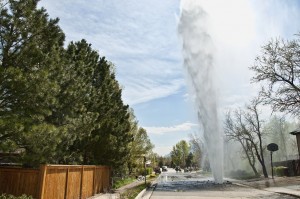Competition Leads to Cost-Savings in Water Infrastructure
Every year in North America, 300,000 water main breaks threaten the safety of our communities and place enormous financial burdens on states already struggling to balance budgets. Decisions on how to deal with the estimated $3.8 trillion worth of necessary upgrades to our nation’s water infrastructure will have profound fiscal impacts on the states for years to come.
However, there is a simple solution: ope n and competitive procurement practices. Dr. Bonner Cohen discusses this idea in the American Legislative Exchange Council’s newest State Factor, “Lowering Costs in Water Infrastructure through Procurement Reform: A Strategy for State Governments.”
n and competitive procurement practices. Dr. Bonner Cohen discusses this idea in the American Legislative Exchange Council’s newest State Factor, “Lowering Costs in Water Infrastructure through Procurement Reform: A Strategy for State Governments.”
Competition is a fundamental component of a functioning free market and it leads to the most effective delivery of goods and services. However, when it comes to underground water and wastewater infrastructure, some products and technologies are excluded from consideration despite meeting standards set by the American Society for Testing and Materials as well as the American Water Works Association.
By limiting which approved materials can be considered in project bids, states and municipalities are exacerbating an already dire situation. Underground pipes, the Environmental Protection Agency points out, will account for nearly $2.28 trillion of projected water infrastructure costs over the next 20 years. Because water systems are capital-intensive operations, when jurisdictions fail to raise sufficient funds to cover the costs of rehabilitating their underground water networks, repairs are put off, decay accelerates, and the projects require even more funds.
Allowing for the consideration of all materials will introduce competition and help states and municipalities make procurement decisions that will provide the best water infrastructure for taxpayer dollars. Open procurement policies do not mandate the use of a specific product, nor do they attempt to dictate which products are superior. Open procurement and bidding policies simply enable government agencies to consider all viable materials. This allows for the demonstration of the free-market axiom that competition leads to lower prices and higher quality goods.
It is time for state governments to ensure all acceptable and proven materials are considered in project bids. Model policy passed by the Exchange Council, “Open and Fair Competition Act for Water and Wastewater Projects,” does just that. By ensuring that open procurement procedures are utilized in the selection of water and wastewater piping materials, projects can be constructed at the best price and best value for system customers and taxpayers.
